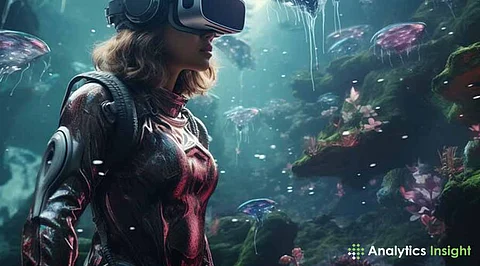

The integration of Artificial Intelligence (AI) into video games has revolutionized the role of Non-Playable Characters (NPCs), transforming them from static entities into dynamic, responsive participants in the gaming experience. This evolution has led to more immersive and engaging interactions between players and the game world.
They interact with the Red Dead Redemption 2 environment on a more profound level, by responding and reacting to all of the things that the gamer does. That is, acting aggressively may set the townsfolk into fear, or even animosity. Dynamic interaction makes game worlds feel 'alive' or responsive.
The Witcher 3: Wild Hunt features NPCs with distinct personalities and routines. They follow daily schedules, such as working during the day and resting at night, making the world feel more authentic. Their reactions to the player's choices also influence the storyline, adding depth to the narrative.
In CyberWorld 2077: Rebooted, AI-driven NPCs adapt to the player's decisions and the game's environment. This adaptability leads to varied interactions, where NPCs might offer assistance, challenge the player, or react to the player's reputation, enhancing the game's replayability.
Eternal Kingdoms showcases NPCs that learn from player interactions. They remember past encounters and adjust their behavior accordingly, creating a more personalized experience. This learning ability makes each playthrough unique, as NPCs evolve based on the player's actions.
In Galactic Frontiers NPCs engage in complex dialogues and strategic decision-making. Their AI allows them to plan and execute strategies, making them formidable opponents or valuable allies, depending on the player's choices.
Rogue AI: Dark Horizons features some very unpredictable challenges with the help of NPCs. Their AI adapts to strategies adopted by players, so there's always fresh and engaging gameplay. This means that no two encounters are the same.
Lost Realms introduces the player to the presence of NPCs that respond to environmental changes and player actions. Their AI allows them to react to events in the game world, such as natural disasters or political shifts, which influences their behavior and interactions with the player.
The development of AI-powered NPCs is driven by advancements in technologies such as Natural Language Processing (NLP) and behavior planning. NLP enables NPCs to process and generate human-like responses, fostering more natural and dynamic dialogues. Behavior planning allows NPCs to make decisions in real time by analyzing their environment and predicting scenarios, resulting in more believable and responsive behaviors.
AI in gaming is setting a new standard for interactive experiences. From adaptive storylines to smarter NPCs, AI makes games more immersive, challenging, and rewarding. As AI technology continues to evolve, the potential for creating more dynamic and engaging NPCs is vast, promising even more immersive gaming experiences in the future.
